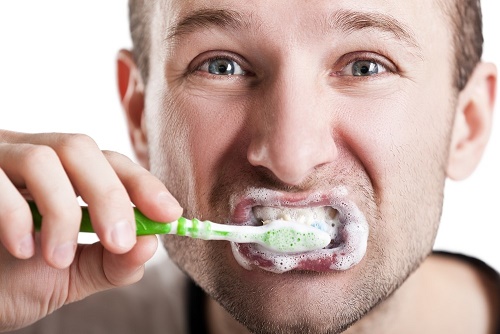


Pain and swelling, accompanied by a considerable amount of discomfort, can be expected after undergoing a wisdom tooth extraction. This is completely normal, and is in fact part of the body’s natural healing process. However, taking care of and brushing teeth after wisdom teeth surgery is very important. Infections are common in patients who do not keep their teeth and mouth clean after a medical procedure, and this can result in dry socket, which is the painful inflammation around the extracted tooth.
Although it is very important to maintain oral hygiene after dental surgery, you have to be careful about brushing because improper brushing may interfere with blood clotting or damage your stitches, which can lead to longer healing times or cause an infection. You can still start brushing your teeth gently the day after surgery. Only after three days of the surgery can you resume your regular brushing and flossing routine, and you should avoid brushing the area where you had your wisdom teeth extracted.

During this period, be sure to brush your teeth carefully and slowly. Avoid irritating the sensitive surgery spot to avoid damaging the blood clots that protect the surgery site and reduce the chances of inflammation.
72 hours after your surgery is when you can come back to your regular dental hygiene regimen, but continue to exercise caution near and around the surgery site to avoid irritation.
Because of the nature of wisdom tooth extraction, and the fact that the mouth has many blood vessels, patients might find that their wound bleed constantly after their surgical procedure. To address this issue, constant pressure on the bleeding site can be effective. You can use a clean and moist gauze, or a moistened tea bag to do this. Acids in tea help in the clotting process and can be used for small amounts of bleeding. What's more, try not to suck on anything, and avoid hot liquids which may reduce the speed of formation of clots. You should always contact your dentist in case of long term and heavy bleeding.
A chunk of ice wrapped in a piece of cloth can be applied on the swollen area for 10 minutes at a time, with each application followed by a 20-minute break. This will help to reduce the facial swelling that is common after a wisdom tooth extraction.
Pain killers such as acetaminophen or ibuprofen can be taken if you experience minor pain. If you need stronger medicines, you can speak to your dentist about what is right for you. Besides, you should continue to take the antibiotics prescribed before tooth extraction to avoid infection.
Brushing teeth after wisdom teeth surgery is extremely important, and you also need to pay attention to your diet. Avoid eating hard, chewy, hot, or spicy foods for at least one day after your surgery, because eating such foods increases the chances of getting food stuck in your tooth socket, leading to irritation of your wound. You should therefore only eat soft foods such as yogurt or applesauce for the first 24 hours. Also be sure to have plenty of water, and avoid alcoholic, caffeinated, carbonated and hot beverages.
For smokers, avoid smoking for at least 3 days after surgery, and wait even longer if you can. Chewing tobacco should also be avoided, but for at least 7 days. Tobacco products can delay the healing of your wound and can even lead to complications.
Rinse your mouth with saltwater by mixing one teaspoon of salt with 8 ounces of warm water. Allow it to soak in your mouth before letting it drizzle out into your sink. Saltwater is known to promote healing and decrease irritation.